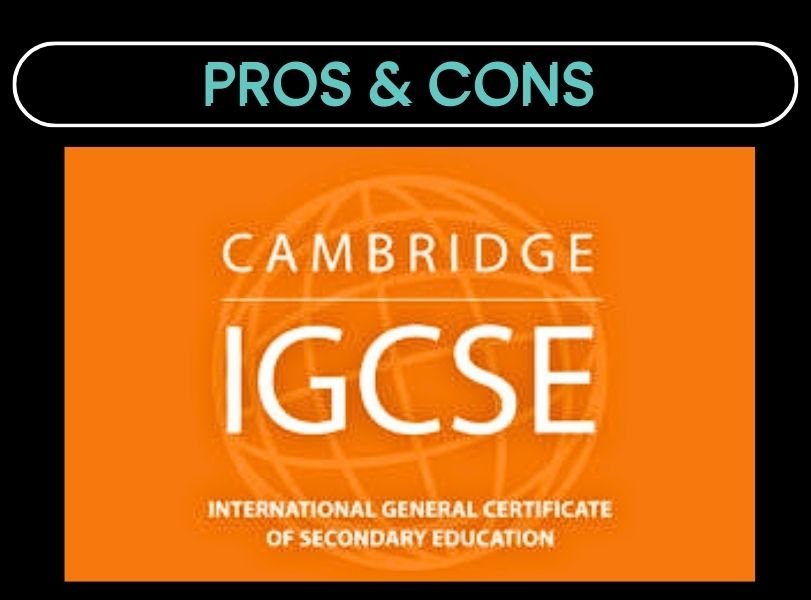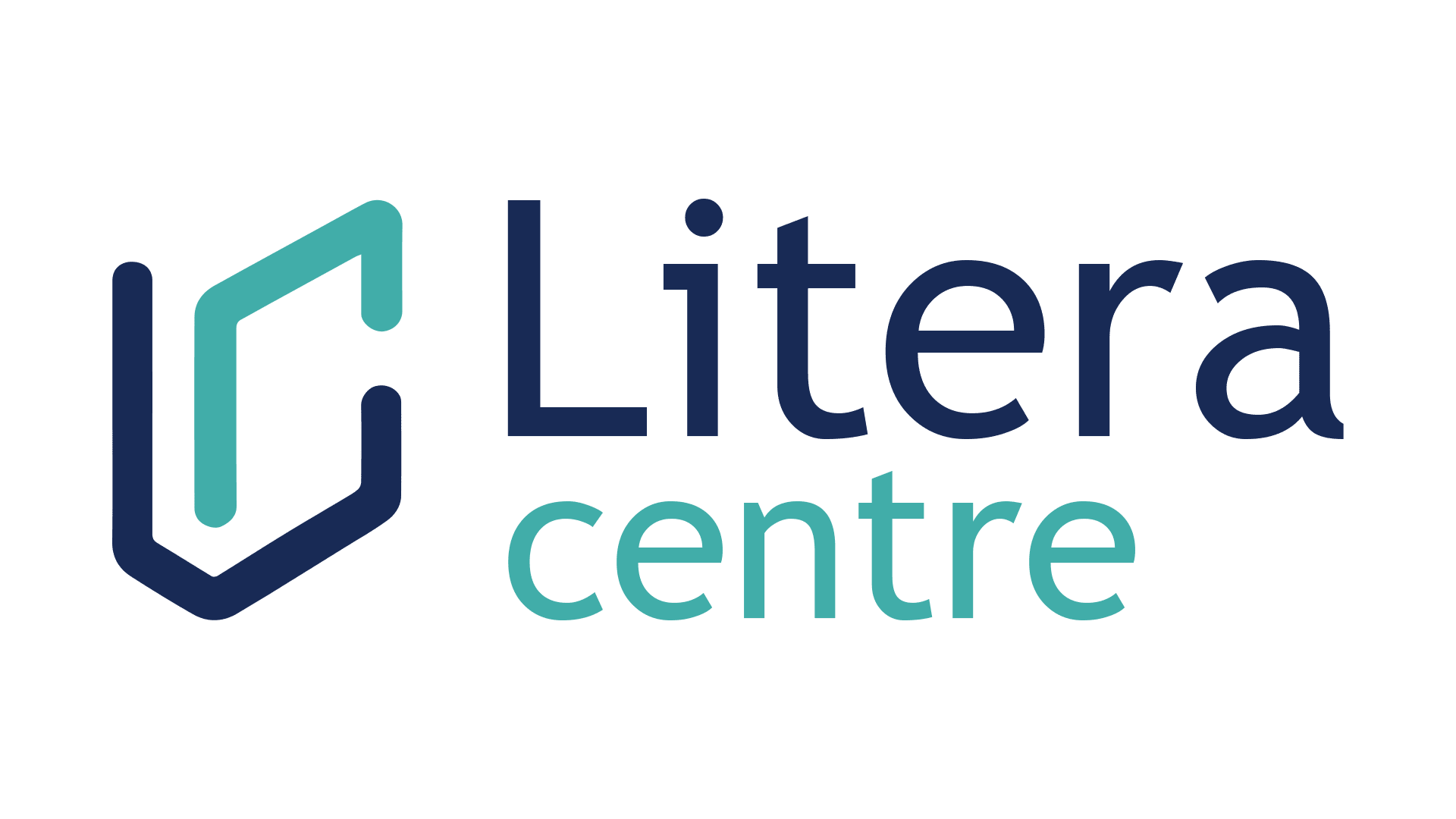Making decisions can be difficult, especially when both sides have advantages that you cannot overlook! That is why deciding IGCSE vs CBSE is difficult.
Regardless of whether their child receives an elementary or secondary school, parents strive to provide the finest possible education for their children. Making the appropriate choice when choosing an educational board in India is critical to a student’s bright future.
While CBSE (Central Board of Secondary Education) is one of our country’s most popular boards, IGCSE brings the world to India, and that’s a big deal! Each has shown to be exceptional at building the proper educational foundation.

Let us take a look at the differences between IGCSE vs CBSE ,their Pros and Cons.
What is IGCSE?
The IGCSE (International General Certificate of Secondary Education) syllabus is internationally recognized and is administered by the University of Cambridge International Examinations. The IGCSE curriculum is designed to support children’s entire development. The goal of learning in this curriculum is to build analytical, creative, and critical thinking skills. The curriculum is internationally recognized and prepares pupils for higher education programs including AS and A levels, the IB Diploma, and the North American APT.
IGCSE board has blended local economies and cultures in the Indian setting to ensure that students obtain not just a worldwide perspective but also an awareness of local cultures. Students have the option of choosing between core and optional classes. The curriculum is thought to be quite demanding, with assessments meant to examine students’ total knowledge and application skills. Because of its international recognition and standard, this board is ideal for those who aspire to pursue higher education overseas.

Salient Features of IGCSE
We’ll need you to forget everything you know about learning for you to succeed here. The IGCSE curriculum introduces a novel approach to learning and education.

- The Cambridge Curriculum is one of the world’s most child-centered programs.
- The curriculum abandons the traditional approach to compulsory subjects and classrooms. It provides schools with a list of elements that must be taught in each topic. This list is used to create the full curriculum at schools.
- The IGCSE is project-based and hands-on. Everything a child learns comes through activity, play, and experience. Instructional learning is reduced to a bare minimum.
- In IGCSE, students are strongly encouraged to participate.
- In a Cambridge school, even the assessments are different. Children are assessed on their capacity to apply what they’ve learned rather than their ability to reproduce what they’ve studied or fill out exam sheets.
- There are no textbooks in this library. The board, on the other hand, suggests a wide choice of publications from which schools and children can choose.
Pros & Cons of the IGCSE Curriculum

Let’s take a look at the pros of the IGCSE board:
- There is a predetermined course that the student must follow. There is no uncertainty in achieving goals because everything is clear.
- Workshops are not required for teachers regularly.
- The curriculum is based on the phrase ‘Global Village,’ although it has extremely distinct content for each country.
- The assessment is thought to be quite reliable, and it aids students in concentrating more.
- Teachers are not tasked with developing curricula. Many countries lack teachers capable of developing curriculums.
- Parents all across the world prefer pre-arranged external exams.
Cons of IGCSE Curriculum:
Here’s the list of cons that you should know about IGCSE.
- IGCSE-affiliated schools charge high fee due to the lavish facilities and the high cost of hiring qualified teachers to teach such programs.
- The IGCSE curriculum is extensive, which can be demanding for pupils, and reference books and tuition are difficult to come by.
- The grading system is strict, and it is considered one of India’s most thorough educational systems.
- The course is set in stone and will not be changed to accommodate a fresh group of students.
- The IGCSE curriculum does not value creativity or space.
How Litera Centre Helps IGCSE Students?

At Litera Centre, they offer a dedicated staff of IGCSE tutors who use tailored, student-centered IGCSE online preparation sessions to help IGCSE students in grades 9 and 10 resolve their doubts and grasp the ideas completely.
Online tutors can improve students’ understanding and help them earn good scores by providing custom-made example papers, previous year question papers (with answers), and beneficial study materials. Their skilled and experienced IGCSE online teachers offer students some helpful hints and ideas that will help them ace the exam. Students would receive fair criticism and immediate doubt clarification under the supervision and guidance of IGCSE educators.
Why are We Different?
Choosing the right educational support for IGCSE can be a game-changer for students. At Litera Centre, we pride ourselves on offering unique advantages that set us apart from traditional tutoring methods. Here’s why our approach is different and how it can benefit your child:
- Convenience: At Litera Centre, we understand the value of time and energy. Our IGCSE board tutors deliver top-notch education from the comfort of your own home, eliminating the need for exhausting commutes. This convenience allows students to focus better on their studies without the added stress of traveling. Whether it’s through 1:1 live classes or micro group sessions, our online platform ensures that students receive the best educational experience right where they are.
- Tailor-Made: Every student is unique, and so is our approach to teaching. Our experienced and motivated teachers at Litera Centre are dedicated to bringing out the best in each student. We recognize that each child has a distinct learning style – some are rapid learners, while others may take a bit more time to grasp concepts. Our tailor-made learning plans are designed to cater to individual needs, ensuring that each student can learn at their own pace. This personalized approach helps in addressing specific areas where a student might need more focus and practice.
- Goal-oriented: In today’s competitive academic environment, having a strong foundation is crucial for success. Our goal-oriented approach aims to enhance learners’ knowledge and skills in a structured manner. By focusing on the learning curves and specific requirements of each student, our experts strive to provide a solid basis for academic excellence. This systematic approach not only prepares students for their IGCSE exams but also builds confidence and competence that will benefit them in the long run.
- Focused: Our teaching philosophy revolves around concept-based learning. We aim to maximize each student’s potential by ensuring they thoroughly understand core concepts. We strongly emphasize clearing up doubts and providing in-depth knowledge, especially for students in grades 6 to 8. We strive to make learning engaging and effective without overwhelming them. By concentrating on essential subjects and fostering a deep understanding, we help students build a solid academic foundation.
FAQs:
Here’s the list of the frequently asked questions:
Which is better CBSE or IGCSE?
In comparison to the Central Board of Secondary Education, IGCSE allows students to choose from a wider range of disciplines. Students at the CBSE board are only allowed to choose subject combinations within their stream. IGCSE, on the other hand, offers a wide range of courses and combinations, with no restrictions based on the streams. For parents who want to settle down in another country, the IGCSE board is the ideal option.
Which is hard CBSE or IGCSE?
In comparison to CBSE, IGCSE focuses on knowledge and making the mind creates for learning. The syllabus is highly challenging, and the emphasis is on application rather than theory learning.
Is Cambridge easier than CBSE?
The Cambridge Board is typically thought to provide a greater emphasis on practical approaches, allowing pupils to concentrate on creative thinking and problem-solving. CBSE is a lot easier and focuses on laying a solid foundation, particularly in Science and Math.
What are the disadvantages of IGCSE?
- This course will be significantly more expensive than those offered by other state and national boards.
- English is the only medium of instruction. If a youngster wants to study IGCSE, they should join this board as soon as possible.
- If you want to study engineering, medicine, architecture, or other related professional courses in India, you should look at state and central boards because they are more focused on the entrance exams for these courses.
Is IGCSE useful in India?
Yes, it is recognized as a qualification for admittance into Class XI or other higher secondary education programs in India by the CBSE, CISCE, and state education boards. It’s also a recognized Class X qualification in India, and it’s one of the requirements for admission to college programs.
Is IGCSE eligible for IIT?
Yes, Because IGCSE is a recognized educational board, you will almost certainly get admitted. Exams such as the JEE Main and Advanced are used to gain admission. You must have completed your 12th grade with physics, chemistry, and math.
Is IGCSE accepted in universities?
Yes, both IGCSEs and GCSEs are acceptable for university admission.
What is the IGCSE equivalent in India?
IGCSE stands for “International General Certificate for Secondary Education”. According to the Association of Indian Universities, five IGCSE passes and at least two A-Level passes are comparable to a +2-stage certificate from an Indian board, allowing students to enroll in bachelor’s degree programs in Indian universities.
Is IGCSE harder than CBSE?
Both IGCSE and CBSE have their own challenges. IGCSE is known for its thorough assessment and international focus, while CBSE is known for its comprehensive curriculum tailored to the Indian education system. The difficulty varies based on a student’s strengths and interests, so it’s important to choose a curriculum that aligns with these factors.
Is British curriculum harder than CBSE?
The difficulty level of the British syllabus (like IGCSE) is different compared to CBSE. The UK syllabus often emphasizes critical thinking and independent learning, whereas the CBSE syllabus tends to be more structured in its approach. The perceived difficulty may also depend on individual learning styles and preferences.
Is GCSE harder than CBSE?
Evaluating the difficulty level between GCSE and CBSE is subjective. GCSEs are known for their extensive and in-depth content, promoting analytical thinking and practical application. In contrast, CBSE is perceived as more structured, emphasizing a comprehensive grasp of fundamental subjects. The level of challenge may differ based on how well a student adapts to the teaching methods and content of each curriculum.
Is IGCSE good for Indian students?
Certainly! The IGCSE is a beneficial choice for Indian students as it provides a well-rounded education that is recognized worldwide. It equips students with critical thinking abilities and prepares them effectively for higher education and future careers.
What is IGCSE board?
The IGCSE board refers to the International General Certificate of Secondary Education, which is a globally recognized qualification for students aged 14 to 16. It is not a single board but a program developed by Cambridge Assessment International Education (CAIE), offering a wide range of subjects and fostering critical thinking skills.
Does IGCSE have board exams?
Yes, IGCSE (International General Certificate of Secondary Education) does have board exams. Students typically take these exams at the end of the course, which is usually in May or June each year. The exams are set and marked by Cambridge Assessment International Education (CAIE), the organization behind the IGCSE program.
What is IGCSE?
The IGCSE, or International General Certificate of Secondary Education, is a well-known qualification for students aged 14 to 16. It’s provided by Cambridge Assessment International Education (CAIE) and offers a diverse curriculum, focusing on critical thinking and practical application of knowledge.
Is IGCSE better than CBSE?
Deciding between IGCSE and CBSE depends on personal preferences and goals. IGCSE emphasizes critical thinking and has a global curriculum, while CBSE is more aligned with the Indian education system. The choice should consider factors like future academic aspirations and individual learning preferences.
Is IGCSE harder than ICSE?
Determining whether IGCSE is more challenging than ICSE varies based on individual student abilities. IGCSE is recognized for its rigorous assessment and worldwide curriculum, whereas ICSE is known for its comprehensive subject study. Both exams present challenges but can be tackled with thorough preparation and a grasp of the syllabus.
Is IGCSE syllabus good for Indian students?
Absolutely! The IGCSE syllabus is advantageous for Indian students, emphasizing critical thinking and problem-solving skills, which are highly prized. Furthermore, its global recognition creates opportunities for further education within India and abroad.





